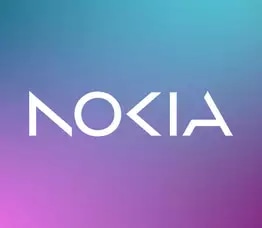Is collaborating now the key to competing?

The next digital evolution for enterprises is a collaborative one
Yuval Noah Harari, the evolutionary historian, argues in Sapiens that humans’ ability to collaborate in endlessly flexible ways with different individuals elevated mankind above all other species. Yet, a strategy of open collaboration has not generally been considered essential to a profitable business. In fact, the notion of competitive advantage is usually fundamental in a market economy. Unsurprisingly then, technology and digital transformation has traditionally been leveraged by enterprises to separate themselves from their competitors. But the next era of digital transformation, powered by more intelligent networks, will depend on enterprises evolving to an altogether different model.
At Nokia, we believe this network-driven transformation will deliver seismic leaps forward in everything from productivity to sustainability. But the full potential will only be realized if new models of digital collaboration and transparency replace old ones of exclusivity. Whether it is to find new growth or to solve the great global challenges, businesses, developers and governments must enter new ecosystems and partnerships. The rewards could be exponential.
1+1+1+1+1 = Revenuen
The business case for the advantage from collaboration is substantial. Enterprises which collaborate vertically and horizontally benefit from outsized revenue growth.1 Today these advantages take the form of reduced opex, economies of scale and flexibility. On a macro level the picture is similar; many developed economies have suffered from sluggish productivity growth since 20072, yet sectors that have relied on inter- and intra-sector collaboration, such as the semiconductor industry, have boomed.3 Select enterprises across other sectors are discovering the benefits of ecosystems and collaboration through technology too.
In the energy sector shared responsibility and collaboration are critical if decarbonisation targets are to be met. This means breaking down the siloes that exist in the generation, transmission, storage, and consumption of electricity. By sharing data, opening insights and pooling resources, organizations can accelerate the transition to renewables and manage energy costs.
Manufacturing firms traditionally keep their technology and operations as closely guarded secrets from their competitors. The promises of Industry 4.0 innovations are challenging this model. Certain companies are now pioneering horizontal and vertical data sharing ecosystems, fostering immediate gains in asset optimization (such as warehouse robots trained with better AI/ML), value chain tracking, and enhanced digital twins. The principle of co-operation to accelerate growth and innovation is gaining traction.
The ethical case is equally compelling. Many of the era-defining challenges facing the world today, like climate change and the ageing global population, are too complex for any one innovation, enterprise, or government to solve alone. Another example would be ethical AI with goals of fairness, accountability, transparency and explainability. To mitigate the significant risks whilst capturing the opportunities, ecosystems of AI software developers, researchers, investors, and regulators must share data and responsibility transparently and equally.

Building collaboration into networks
Underpinning all these open collaborations is infrastructure, and if the collaboration is technological, the infrastructure is networks. Networks must evolve to provide the flexibility, security, and reliability that enterprises need to collaborate horizontally and vertically. Today, 5G – with its ultra-low latency and high reliability – is doing just that. But the next generation of networks will be more intelligent and powerful still, able to think, sense and act. And just as with enterprises, this networking evolution will require openness and collaboration. Nokia is leading the way in building this openness into networking technologies and facilitating new ecosystems.
Nokia has helped service providers to transform with a cloud-native, modular, and secure 5G core networking portfolio. And to foster new, monetizable ecosystems, networks are designed with open architectures and APIs for developers to build on.
We are engaging with enterprises in new collaborative ways. At the research campus Arena20364, in Stuttgart, this means joining forces with automotive leaders to create a flexible research factory model for producing the next generation of automobiles. We have enabled the campus with private wireless and optical networks as a foundation for innovation.
We are also working with start-ups and the VC ecosystem to explore adjacencies and new growth avenues. Nokia’s NGP Capital is fostering new innovators with a $400M fund5 dedicated to growth stage companies across edge cloud, cybersecurity, digital industries and digital transformation. Nokia looks to partner with the portfolio companies for joint business growth.
Just as Harari argues flexible collaboration is what distinguished humanity, perhaps we can also say that a similar model will make the next stage of businesses’ digital transformation different. As networks become ever more intelligent, secure, and powerful, ever more valuable collaborations can be built within and around them. From service providers and developers collaborating in more profitable network ecosystems, to manufacturing firms making leaps forward in automation; the rewards for businesses and society are exponential. This is the future of enterprise collaboration.
Learn more:
https://www.bell-labs.com/collaboration-opportunities/arena2036/#gref
References:
1. https://www.sciencedirect.com/science/article/pii/S000768131930031X
2. https://cepr.org/voxeu/columns/re-evaluating-sources-recent-productivity-slowdown
3. https://www.accenture.com/_acnmedia/PDF-119/Accenture-Globality-Semiconductor-Industry.pdf
4. https://www.bell-labs.com/collaboration-opportunities/arena2036/#gref


